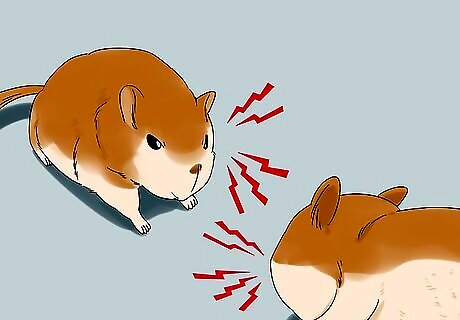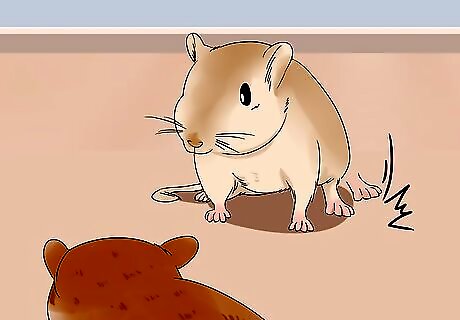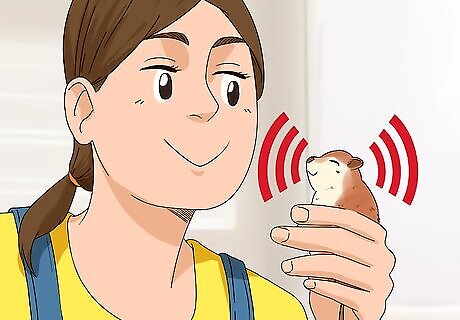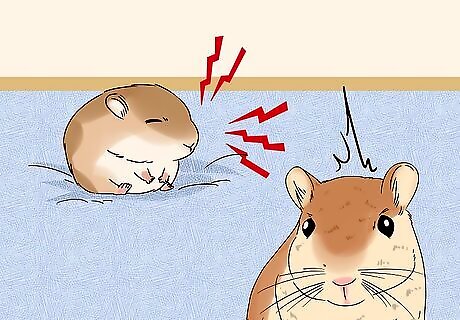
views
X
Trustworthy Source
PubMed Central
Journal archive from the U.S. National Institutes of Health
Go to source
You can better understand your gerbil by paying attention to their vocalizations on a regular basis. Listen for positive and negative vocalizations from your gerbil so you can respond to its needs and get a sense of its moods.
Noticing Negative Vocalizations

Listen for a loud squeak from a frightened gerbil. This is a sign that your gerbil is feeling frightened or threatened. It may feel threatened by its surroundings or by people around it. Your gerbil may let out one loud squeak or a series of squeaks. If your gerbil lets out loud squeaks at you, it may be in a bad mood or in pain. You may want to take it to the vet if it continues to let out loud squeaks at you for several days in a row. If your new gerbil squeaks at you, it may want to be left alone. Wait a day and try to interact with it again.

Notice if your gerbils squeak aggressively at each other. Gerbils will squeak loudly at each other when they are feeling aggressive towards one another. This may be a sign that they are annoyed or frustrated with each other. Sometimes, loud squeaks between gerbils means they are about to wrestle or fight. If you notice your gerbils are letting out loud squeaks at each other, facing one another with their noses pressed together and their hair raised, separate them and put them in separate cages until they calm down. Use a toy to separate the gerbils into different corners of the cage. You can also put on gloves and pick up one gerbil to separate them.

Check if your gerbil makes a thumping sound as a warning. Gerbils will make a thumping sound with their hind legs when they are feeling threatened or alarmed. They may also do this as a warning sound for other gerbils and pets around them. If your gerbil does this, check for any possible triggers around its cage, such as another pet or a loud noise. In some cases, a male gerbil will make a thumping sound around a female gerbil as part of a mating ritual.
Listening for Positive Vocalizations

Notice if your gerbil purrs happily when you hold it. Your gerbil may also make a purring noise, similar to a cat, when you pet it or stroke it. This is a sign that your gerbil enjoys being touched by you and is in a good mood. Your gerbil's purring may also cause it to vibrate. You may feel these vibrations on your hand when you hold it or pet it.

Listen for high pitched chirps from your young gerbil. Baby gerbils will call for their mother by making high pitched squeals or chirps. This is their way of communicating with their mother to get attention or acknowledgement from them. Do not be alarmed if your baby gerbil makes a high pitched chirping sound. As it gets older, it should quiet down.

Check for excited yips from your gerbil. Your gerbil may let out an excited yip when you interact or play with it. This is usually a sign that your gerbil is excited to see you and play with you. Your gerbil may also jump in the air as it yips to show its excitement.




















Comments
0 comment